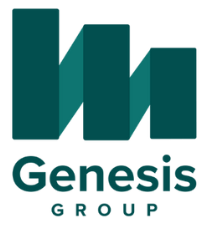Reading Time: 14 minutes
The Self-Employed Mortgage Challenge:

When it comes to securing a mortgage, self-employed individuals often find themselves navigating a unique set of challenges. Unlike traditional employees with steady pay slips, the self-employed must prove their financial stability and income in different ways. This task can be daunting, but understanding the importance of accurate income documentation is the first step towards making the dream of homeownership a reality.
The Self-Employed Landscape
In Canada, the self-employed workforce is a vibrant and growing segment of the economy. These individuals range from freelancers and contractors to business owners and entrepreneurs. While self-employment offers flexibility and the freedom to chase personal business goals, it also brings variability in income and the absence of conventional employment proof, factors that can complicate the mortgage process.
Navigating Through Documentation
For the self-employed, the key to a successful mortgage application lies in thorough and accurate income documentation. This process involves more than just showing a single pay-slip or an employment contract; it requires a comprehensive portfolio of financial records. The goal is to construct a compelling narrative of financial stability and reliability that can persuade lenders to approve the mortgage application.

Embracing the Challenge
Understanding and preparing for these unique challenges are crucial. This guide is designed to demystify the process and provide self-employed individuals with the knowledge and tools needed to navigate their mortgage journey successfully. From organizing financial statements to understanding lender requirements, we will cover the essential steps that make the path to homeownership less daunting for the self-employed.
Understanding Self-Employment in Canada

Self-employment in Canada encompasses a broad spectrum of individuals, ranging from freelancers and independent contractors to entrepreneurs and small business owners. This category of work is defined by an individual’s engagement in a business where they are not considered an employee but rather operate their own trade or business. It’s a segment marked by diversity in professions, varying income streams, and different business models.
Defining Self-Employment
In Canada, self-employed individuals are characterized by having significant control over how and when their work is done. They often provide their tools and equipment and have the opportunity to work with multiple clients. This autonomy, however, comes with responsibilities such as self-managing taxes and retirement funds, unlike traditional employees whose employers handle these aspects.
A Growing Trend
Self-employment has been a growing trend in the Canadian job market. According to Statistics Canada, the self-employed segment makes up a significant portion of the country’s workforce. This rise is attributed to various factors, including advancements in technology, shifts in economic structures, and a growing desire for work-life balance and job autonomy.

The Economic Impact
This trend is more than just numbers; it represents a fundamental shift in the Canadian economy’s nature. Self-employed individuals contribute significantly to the economy’s dynamism and are often key drivers of innovation and job creation. However, this economic contribution comes with its set of challenges, especially when these individuals seek to navigate the traditional financial and mortgage systems.
Understanding the scope and impact of self-employment in Canada is crucial for both policymakers and financial institutions. This awareness ensures that the systems and processes, including those for mortgages, evolve to meet the changing nature of work and effectively support this vital segment of the workforce.
The Role of Income Documentation in Mortgage Approval

When it comes to obtaining a mortgage, income documentation plays a pivotal role, especially for self-employed individuals in Canada. Lenders’ scrutiny of income for self-employed applicants is more rigorous compared to traditionally employed individuals due to the perceived higher risk associated with fluctuating incomes and business stability.
Income Stability Concerns
For lenders, the primary concern is the stability and reliability of income, which is generally more predictable for traditionally employed individuals. These individuals often present a steady employment record and consistent paychecks from an employer, making it easier for lenders to assess their long-term financial stability. In contrast, self-employed individuals might face challenges due to the variable nature of their income, with fluctuations in earnings being quite common.
Diverse Income Sources
Self-employed individuals often have multiple income streams, which can complicate the income verification process. They may earn from different projects, clients, or investments, and their income can significantly vary from month to month or year to year. This diversity, while beneficial for spreading risk and potential for higher earnings, requires a more in-depth analysis by lenders to ensure that the borrower has a sustainable and reliable income.

Documenting Self-Employed Income
For self-employed mortgage applicants, lenders typically require a comprehensive set of documents. These may include:
- Personal and business tax returns from recent years.
- Profit and loss statements.
- Bank statements.
- Contracts or invoices to prove consistent work.
- Evidence of a sustainable business model.
Understanding the nuances of income documentation is critical for self-employed individuals seeking mortgage approval. It’s not just about showing profitability but also demonstrating the longevity and stability of their income. This part of the process can often seem daunting, which is why it’s recommended to maintain well-organized financial records and possibly seek assistance from financial advisors or accountants.
Types of Documents Required for Self-Employed Applicants

Navigating the mortgage application process as a self-employed individual in Canada requires meticulous documentation to prove income stability and reliability. Here, we’ll break down the types of documents you’ll likely need and offer some tips on organizing them effectively for a smoother mortgage application experience.
Essential Documentation for Self-Employed Mortgage Applicants
Personal and Business Tax Returns: Lenders will typically ask for the last two to three years of tax returns. These documents are crucial as they provide a clear picture of your yearly income and business deductions.
Bank Statements: These are required to verify the income you declare. Lenders often request both personal and business bank statements to understand your cash flow.
Financial Statements: If you operate a registered business, you’ll need to provide financial statements. These include balance sheets and income statements, which highlight the financial health of your business.
Proof of Business Ownership: This can be in the form of business registration documents, articles of incorporation, or contracts with clients.
Credit Score Report: While not always directly asked for, your credit score significantly impacts your mortgage application. Ensure you know your score and work on improving it if necessary.

Organizing Your Documentation
Efficient organization of your documents not only saves time but also presents you as a responsible borrower. Here are some tips:
Maintain Up-to-Date Records: Keep your financial documents updated and in order. This includes having recent bank statements and the latest tax return filings.
Digitize Your Documents: Consider scanning all your documents and storing them digitally in a secure folder. This makes sharing them with lenders easier and more efficient.
Seek Professional Help: If organizing these documents seems overwhelming, consider hiring an accountant or a financial advisor. They can not only help you with organization but also ensure your documents reflect your true financial standing.
Tax Returns: Your Income Story

For self-employed individuals in Canada, tax returns are more than just a legal obligation; they become a vital narrative of your income stability and business success. Understanding how to use these documents to your advantage is key when applying for a mortgage.
Using Tax Returns to Showcase Financial Stability
Consistent Income Reporting: Lenders look for consistency in your income over the years. A stable or increasing income reported in your tax returns can work significantly in your favor.
Understanding Adjusted Gross Income: Be aware that lenders will focus on your adjusted gross income, which reflects your income after deductions. High business expenses may lower this figure, affecting your loan eligibility.
Recent Tax Documents: Ensure that you have the most recent tax returns available, typically the last two or three years. This gives lenders the most accurate picture of your current financial status.

What Lenders Look for in Your Tax Documents
Consistency and Growth: Lenders prefer a track record of steady or increasing income. Large fluctuations might raise concerns about the stability of your earnings.
Legitimate Deductions: While deductions are common and legal, excessive deductions that significantly reduce your taxable income might raise red flags.
Professional Preparation: Tax returns prepared by a certified accountant or tax professional can add credibility to your application.
Additional Proof of Income

For self-employed Canadians, presenting a comprehensive picture of your income often goes beyond just tax returns. Alternative documentation can play a crucial role in substantiating your earnings, especially when traditional proof might not fully capture your financial health.
Diversifying Your Income Documentation
Profit and Loss Statements: Detailed P&L statements, preferably prepared or certified by a professional accountant, can illustrate the health and profitability of your business.
Client Contracts and Invoices: These documents can demonstrate consistent cash flow, especially for those who work on a contract basis. Long-term client agreements are particularly favorable as they indicate stable, ongoing income.
Bank Statements: Regular bank statements can help corroborate the income figures you declare. They provide a real-time snapshot of your financial transactions.

Why Supplemental Income Records Matter
Filling in the Gaps: Tax returns might not always reflect recent changes in income, especially for those whose business has recently seen a significant uptick.
Building Credibility: Diverse forms of documentation can strengthen your mortgage application by providing a multi-faceted view of your financial situation.
Preparedness: Having a variety of documents at your disposal can expedite the mortgage process and demonstrate your commitment and organizational skills to lenders.
Strategies to Strengthen Your Application

Navigating the mortgage landscape as a self-employed professional in Canada requires a strategic approach to present a strong financial profile. Here’s how you can bolster your application and improve your chances of approval:
Presenting Your Income Effectively
Consistency and Growth: Demonstrate a steady or increasing income trend over the years. If there are fluctuations, be ready to explain them coherently.
Clarity and Transparency: Ensure all documentation is clear and accurate. Any ambiguity in income figures can be a red flag for lenders.
Professional Presentation: Consider having an accountant or financial advisor review or prepare your financial documents. This adds a layer of credibility to your application.
Improving Your Financial Profile
Reducing Debt: Work on lowering your debt-to-income ratio by paying down high-interest debts. This shows lenders that you’re a responsible borrower.
Boosting Credit Score: Regularly check your credit score and report. Pay your bills on time, keep credit card balances low, and avoid applying for new credit too frequently.
Saving for a Larger Down Payment: If possible, save for a bigger down payment. This reduces the lender’s risk and can lead to more favorable loan terms.

Tailoring Your Approach
Customized Solutions: Each self-employed individual’s financial situation is unique. Tailor your strategy to your specific circumstances.
Seek Professional Advice: Don’t hesitate to consult with a mortgage advisor or financial planner who can provide personalized recommendations.
Stay Informed: Keep abreast of the latest mortgage products and lender criteria. What worked a few years ago might not be the best strategy today.
Navigating Income Fluctuations

For self-employed professionals, income can often fluctuate, presenting a unique challenge when applying for a mortgage. However, with the right strategies, these fluctuations can be managed effectively to secure mortgage approval.
Addressing Variable Income in Mortgage Applications
Income Averaging: Lenders typically average your income over two to three years to get a consistent picture. Prepare your financial statements and tax returns accordingly.
Highlighting Profitable Years: If you’ve had particularly profitable years, highlight these to lenders as evidence of your earning potential.
Explaining Income Variations: Be prepared to explain the reasons behind any significant income fluctuations, such as market trends or one-time investments.
Strategies for a Consistent Income Presentation
Maintain Detailed Records: Keep thorough records of your business expenses and income. Detailed bookkeeping can help explain income variations more effectively.
Use Professional Accounting Services: Consider using a professional accountant to prepare your financial documents. This can lend more credibility to your financial reporting.
Project Future Earnings: If possible, provide projections of your future earnings based on current contracts or typical business cycles. This can give lenders more confidence in your long-term financial stability.

Managing Seasonal Fluctuations
Seasonal Savings: If your income is seasonal, demonstrate to lenders how you save during peak times to cover slower periods.
Diversifying Income Sources: Show if you have diversified income streams, reducing the risk associated with fluctuating income.
Working with Mortgage Professionals

Securing a mortgage as a self-employed individual can be a complex process. Engaging with mortgage professionals, especially those who specialize in working with self-employed clients, can be highly beneficial.
The Advantages of Mortgage Brokers for Self-Employed Applicants
Specialized Knowledge: Mortgage brokers with experience in self-employed applications have a deep understanding of the challenges and unique needs of this group. They can provide tailored advice and solutions.
Access to a Wider Range of Lenders: These professionals often have connections with both traditional banks and alternative lenders who may be more receptive to self-employed applicants.
Efficiency in the Process: A good broker can streamline the application process, helping you gather the necessary documents and present your financial situation effectively.
How Mortgage Professionals Improve Your Application
Strategic Financial Planning: They can advise on structuring your finances and documentation to enhance your appeal to lenders.
Negotiation Skills: Brokers can negotiate on your behalf to secure more favorable terms or rates.
Problem-Solving: They are adept at finding solutions to the specific issues self-employed individuals may face during the mortgage process.

Navigating Complex Cases
Unconventional Income Streams: Mortgage professionals can help articulate and validate unconventional or irregular income streams to lenders.
Customized Advice: They provide personalized advice based on your business model, income structure, and future projections.
Success Stories: Self-Employed Mortgage Approvals

Navigating the mortgage process as a self-employed individual can be daunting. However, success stories abound, particularly those who partnered with experienced mortgage brokers like The Genesis Group. Here are a few examples from Ontario, Canada, that showcase the triumph of perseverance and expert guidance.
Case Study 1: The Tech Entrepreneur from Toronto
Background:
A tech entrepreneur in Toronto, struggling with fluctuating income and a complex financial portfolio, found it challenging to secure a traditional mortgage.
How The Genesis Group Helped:
The Genesis Group worked closely with the client, meticulously organizing financial documents and presenting a comprehensive business model to lenders. Their expertise in handling self-employment income and understanding of alternative lending solutions proved crucial.
Outcome:
Secured a competitive mortgage rate with a lender who appreciated the long-term potential of the tech industry.
Case Study 2: The Freelance Designer in Ottawa
Background:
A freelance graphic designer in Ottawa had a robust portfolio but lacked conventional proof of steady income, making her mortgage application a difficult proposition.
How The Genesis Group Helped:
By compiling a detailed record of contracts and recurring clients, The Genesis Group demonstrated the designer’s income stability and growth potential to lenders.
Outcome:
Successfully obtained a mortgage that acknowledged her unique income pattern, allowing her to purchase her first home.
Case Study 3: The Independent Contractor in Hamilton
Background:
An independent contractor in Hamilton faced rejection from several lenders due to the seasonal nature of his work.
How The Genesis Group Helped:
The Genesis Group showcased a multi-year financial summary, emphasizing the contractor’s consistent yearly earnings despite seasonal fluctuations. They also negotiated favorable terms by leveraging the client’s strong credit history.
Outcome:
Acquired a mortgage with a flexible repayment structure, catering to the seasonal income flow.

Key Takeaways:
Expert Guidance Matters: Partnering with knowledgeable mortgage brokers like The Genesis Group can significantly improve the chances of loan approval for self-employed individuals.
Organization is Key: Properly organized and presented financial documents can make a substantial difference.
Custom Solutions: There are lenders who understand and cater to the unique financial situations of self-employed individuals.
Empowering Self-Employed Homebuyers

As we conclude this comprehensive guide, it’s essential to reiterate the significance of meticulous and strategic income documentation for self-employed individuals embarking on the journey of homeownership. Navigating the mortgage terrain as a self-employed professional in Canada can indeed present unique challenges, but with the right approach and expert assistance, these obstacles are surmountable.
The Key to Unlocking Mortgage Success
For the self-employed, showcasing financial stability is not just about presenting numbers; it’s about telling a convincing income story. Your financial documents are more than paperwork; they’re the narrative of your professional success and fiscal responsibility. Accurate and detailed documentation serves as the backbone of your mortgage application, offering lenders a clear, credible picture of your financial health.
If you’re a self-employed individual in Canada, let these words be your encouragement: Your dream of owning a home is not out of reach. Your unique income structure, far from being a deterrent, can be your strength with the right presentation and preparation. Remember, your journey to homeownership is unique, and while it may require extra steps, the destination remains just as rewarding.
Partnering with The Genesis Group
At The Genesis Group, an award-winning mortgage brokerage with over a decade of experience, we understand the nuances and specific needs of self-employed professionals. Our expertise lies in navigating complex income structures and connecting you with lenders who appreciate the value of self-employment. We believe in personalized solutions, tailored to fit the distinctive scenarios of each client.
Are you ready to take the leap into homeownership? Don’t let the intricacies of self-employment hold you back. Reach out to The Genesis Group for bespoke mortgage advice, tailored to your unique professional and financial situation. We are here to guide you through each step, ensuring that your path to buying a home is as smooth and successful as possible.
We invite you to share your experiences or any queries you may have about the mortgage process as a self-employed individual. Your stories and questions can inspire and help others on similar paths. Let’s build a community of informed and empowered homebuyers!

Glossary
Self-Employed Mortgage: A mortgage product designed for individuals who run their own business or work as freelancers and do not have a traditional income verification.
Income Documentation: Financial records provided to prove income, including tax returns, bank statements, financial statements, etc.
Credit Score: A numerical expression based on a level analysis of a person’s credit files, representing the creditworthiness of an individual.
Debt-to-Income Ratio (DTI): A personal finance measure that compares an individual’s debt payment to their overall income.
Fixed-Rate Mortgage: A mortgage with a fixed interest rate for the entire term of the loan.
Variable-Rate Mortgage: A mortgage in which the interest rate can change based on market conditions.
Mortgage Broker: A professional who compares and finds mortgages on behalf of clients.
Mortgage Pre-Approval: A lender’s offer to loan money based on specific criteria, giving you an idea of the size of the mortgage you may receive.
Mortgage Application: A document submitted by one or more individuals applying for a mortgage to purchase real estate.
FAQs
What makes getting a mortgage more challenging for self-employed individuals?
Self-employed individuals often have variable income and unconventional income verification methods, which can be more challenging for lenders to assess compared to traditional employment income.
What kind of documentation do I need to provide as a self-employed individual for a mortgage?
Generally, you will need to provide your tax returns, bank statements, profit and loss statements, and potentially additional financial records to demonstrate your income stability and capacity.
Can I get a mortgage if I have a fluctuating income?
Yes, it’s possible to get a mortgage with a fluctuating income, but it may require more extensive documentation and potentially higher credit scores or down payments.
How does a mortgage broker help self-employed individuals?
A mortgage broker can help navigate the complexities of mortgage applications, find lenders who are willing to work with self-employed income, and assist in presenting your financial information effectively.
Are there special mortgage products for self-employed individuals?
Yes, some lenders offer mortgage products specifically designed for self-employed individuals that might offer more flexible income verification processes.
What is a good credit score to aim for when applying for a mortgage as a self-employed individual?
A credit score of 680 or higher is generally recommended, but requirements can vary by lender.
What is the advantage of getting pre-approved for a mortgage?
Pre-approval can give you a clear idea of what you can afford, strengthen your offer on a home, and speed up the mortgage process once you find a property.
Can my business expenses affect my mortgage application?
Yes, high business expenses might reduce the income that can be considered for your mortgage application, affecting how much you can borrow.
How important is it to keep good financial records as a self-employed individual?
Extremely important, as these records are the primary way of demonstrating your income and financial stability to lenders.
Can I apply for government programs and incentives as a self-employed first-time homebuyer?
Yes, self-employed individuals can often apply for the same government programs and incentives available to first-time homebuyers, as long as they meet the eligibility criteria.

